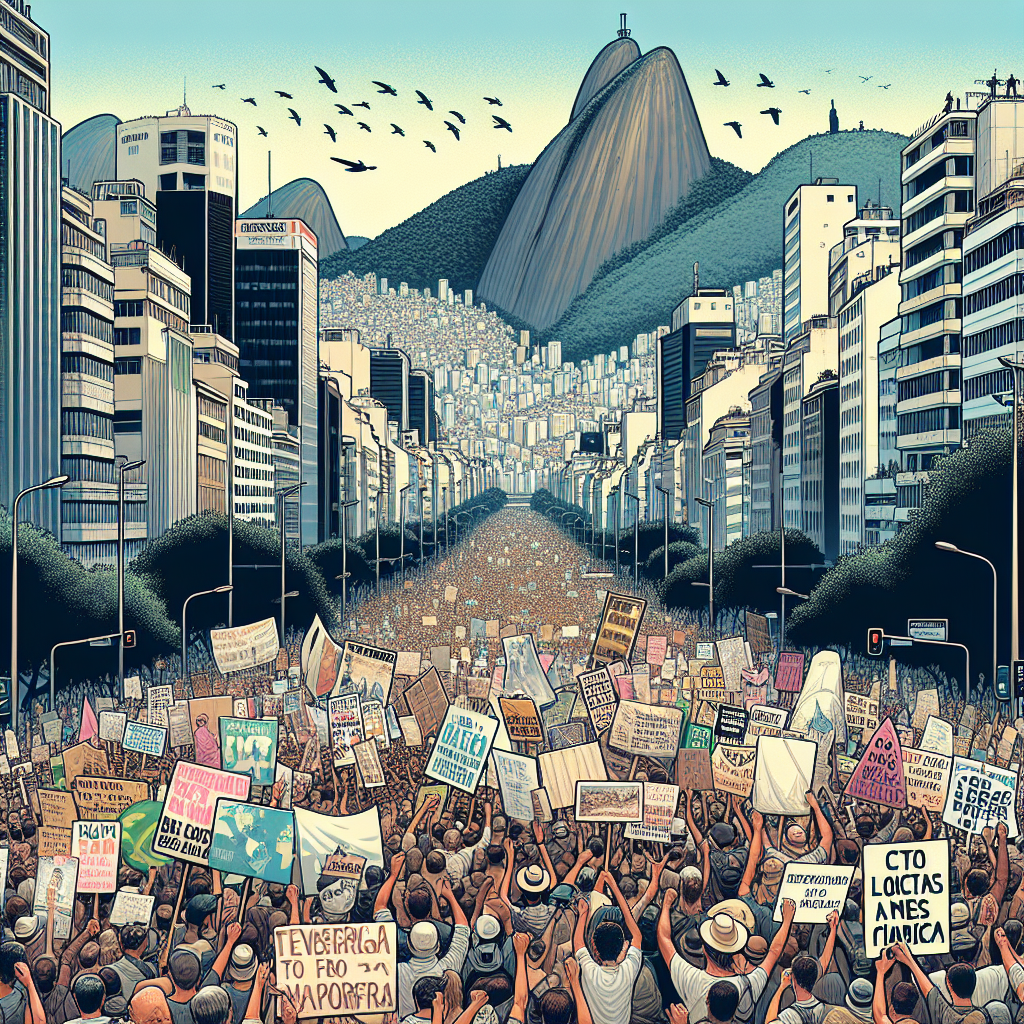Pro-Palestinian Demonstrators Make Their Voices Heard in Rio de Janeiro Amid G20 Summit
As the world’s most powerful leaders gather for the G20 summit, a different kind of assembly is taking place on the vibrant streets of Rio de Janeiro. Pro-Palestinian demonstrators have taken to the streets, their voices echoing through the city as they call for global attention to the plight of Palestinians. This protest, set against the backdrop of the G20 summit, highlights the intersection of global politics and grassroots activism. In this article, we delve into the motivations behind the demonstrations, the significance of their timing, and the broader implications for international relations.
The G20 Summit: A Global Stage
The G20 summit is a pivotal event in the international calendar, bringing together leaders from the world’s largest economies to discuss pressing global issues. This year, the summit is hosted in Rio de Janeiro, a city known for its vibrant culture and history of activism. As leaders discuss economic policies, climate change, and global health, the presence of pro-Palestinian demonstrators serves as a poignant reminder of the human rights issues that remain unresolved.
What is the G20 Summit?
- Purpose: The G20 summit aims to foster international economic cooperation and address global challenges.
- Participants: It includes 19 countries and the European Union, representing the world’s major economies.
- Agenda: Topics often include economic growth, trade, climate change, and sustainable development.
Why Rio de Janeiro?
- Cultural Significance: Rio is a city with a rich history of political activism and social movements.
- Strategic Location: As a major city in Brazil, Rio provides a strategic location for international gatherings.
The Pro-Palestinian Demonstrations: Voices of Resistance
The pro-Palestinian demonstrations in Rio de Janeiro are not just a local event; they are part of a global movement advocating for Palestinian rights. These protests are characterized by their passionate calls for justice and equality, drawing attention to the ongoing conflict in the Middle East.
Motivations Behind the Protests
- Human Rights Advocacy: Demonstrators are calling for an end to the occupation and advocating for the rights of Palestinians.
- Global Solidarity: The protests are part of a broader movement of international solidarity with Palestine.
- Raising Awareness: By protesting during the G20 summit, demonstrators aim to bring global attention to the Palestinian cause.
Key Messages of the Demonstrators
- End the Occupation: A call for the end of Israeli occupation of Palestinian territories.
- Justice and Equality: Advocating for equal rights and justice for Palestinians.
- International Intervention: Urging global leaders to take action and support a peaceful resolution.
The Intersection of Global Politics and Grassroots Activism
The timing of the pro-Palestinian demonstrations during the G20 summit is no coincidence. It highlights the intersection of global politics and grassroots activism, showcasing how local movements can influence international discourse.
The Power of Timing
- Strategic Visibility: Protesting during the G20 summit ensures maximum visibility and media coverage.
- Influencing Policy: Demonstrators hope to influence the discussions and decisions made by world leaders.
The Role of Social Media
- Amplifying Voices: Social media platforms are used to amplify the voices of demonstrators and reach a global audience.
- Building Networks: Activists use social media to connect with like-minded individuals and organizations worldwide.
Broader Implications for International Relations
The pro-Palestinian demonstrations in Rio de Janeiro have broader implications for international relations, particularly in how global leaders address human rights issues.
Impact on the G20 Agenda
- Human Rights Focus: The protests may push human rights issues higher on the G20 agenda.
- Diplomatic Pressure: World leaders may face increased pressure to address the Israeli-Palestinian conflict.
The Role of Brazil
- Host Nation’s Influence: As the host nation, Brazil has a unique opportunity to shape the discussions and outcomes of the summit.
- Domestic Politics: The demonstrations also reflect Brazil’s own political landscape and its stance on international issues.
Conclusion: A Call for Global Action
The pro-Palestinian demonstrations in Rio de Janeiro serve as a powerful reminder of the ongoing struggle for justice and equality in Palestine. As world leaders gather for the G20 summit, the voices of demonstrators echo through the city, calling for global action and solidarity. This intersection of global politics and grassroots activism underscores the importance of addressing human rights issues on the international stage.
In a world where economic policies and political alliances often take precedence, the pro-Palestinian demonstrations remind us of the human stories behind the headlines. As the G20 summit unfolds, the call for justice in Palestine remains a critical issue that demands the attention and action of global leaders.
